What is Sustainable Agriculture?
Adapted from materials from the University of California Sustainable Agriculture Research and Education Program (UCSAREP) www.sarep.ucdavis.edu.
WHAT IS SUSTAINABLE AGRICULTURE?
Sustainability rests on the principle that we must meet the needs of the present without compromising the ability of future generations to meet their own needs. Therefore, stewardship of both natural and human resources is of prime importance. Sustainable agriculture includes sustainable farming systems that are biologically-based and designed to be productive in both the short- and long-term.
Sustainable agriculture integrates three main goals—environmental health, economic profitability, and social equity. Because it is more of a philosophical approach to agriculture than a set of farming practices, the specific practices that can be called sustainable vary depending on the crop and the specific environmental and social issues important to a region. Therefore, it is important that all those interested in supporting sustainable agricultural systems —consumers, growers, environmentalists, farm workers, processors, retailers—educate themselves on the related issues.
Does sustainable agriculture and organic farming mean the same thing?
No. Agriculture can be “sustainable” without being “organic.” And some organic operations may not be sustainable. Organic farming excludes the use of any synthetic agricultural chemicals and then certifies this to be true. Often, however, approaches to management of healthy soils can be similar between organic and sustainable farming systems.
Can chemicals be used in a sustainable system?
Yes. Growers frequently ask if synthetic chemicals are appropriate in a sustainable farming system. Sustainable agriculture approaches are those that are the least toxic and least energy intensive, and yet maintain productivity and profitability. There may be situations where the use of synthetic chemicals would be more “sustainable” than a strictly non-chemical approach.
For example, one technique for weed control may involve mechanical cultivation. A hoe, weed knife, or other implement may need to make several passes in a season to do what one application of Round-Up (a relatively safe, effective, and economic herbicide) could accomplish in terms of weed control. The passes with the mechanical device have associated environmental and social risks (i.e., soil compaction, soil erosion, fuel consumption, potential worker injury). The manager needs to decide which is the most appropriate method based on a particular situation and resource concerns at a particular site. The manager may decide that the chemical option has less environmental, economic, and social risks than the non-chemical option.
Converting to sustainable practices does not mean simple input substitution. Instead, sustainable farming substitutes enhanced management and scientific knowledge for conventional inputs, especially inputs that may threaten natural or human resources. One goal of sustainable agriculture is to develop efficient, biological systems that do not need high levels of material inputs.
Does moving towards sustainability mean a lot of changes for a farmer?
Transitioning towards sustainable agriculture is a process. For farmers, the transition to sustainable agriculture normally requires a series of small, realistic steps.
How are sustainable approaches good for production?
A “healthy” soil is a key component of sustainability. A healthy soil will produce healthy plants that have optimum vigor and are less susceptible to pests. While many crops have key pests that attack even the healthiest of plants, proper soil, water, and nutrient management can help prevent some pest problems brought on by crop stress or nutrient imbalance. Furthermore, crop management systems that impair soil quality often result in greater inputs of water, nutrients, pesticides, and/or energy for tillage to maintain yields. Greater inputs mean greater costs to the grower.
Do sustainable approaches require a lot of additional time and management?
Management decisions that promote sustainability nourish the environment, the community, and the individual. Management decisions should reflect not only environmental and social considerations, but also individual goals and lifestyle choices. Initially, the additional management and expertise may be more costly than traditional approaches. In addition, some of the new technologies are less developed, tested, and understood because of the lack of research on sustainable farming techniques. Therefore, there are economic risks associated with adopting new practices.
What kind of sustainable practices apply to vineyard management?
The Sustainability in Practice (SIP) Standards describe a collaboratively designed sustainable vineyard system. They address soil, water, pest, and grape management, as well as resource protection, human resources, and wine quality. SIP is a technically-based, flexible approach to educating and guiding growers towards more sustainable farming practices. The Vineyard Team has a proven track-record of moving the industry towards integrated farming practices – and raising the standards regarding vineyard management.
Learn More About Our Sustainable Vineyard Educational Events and Library.

